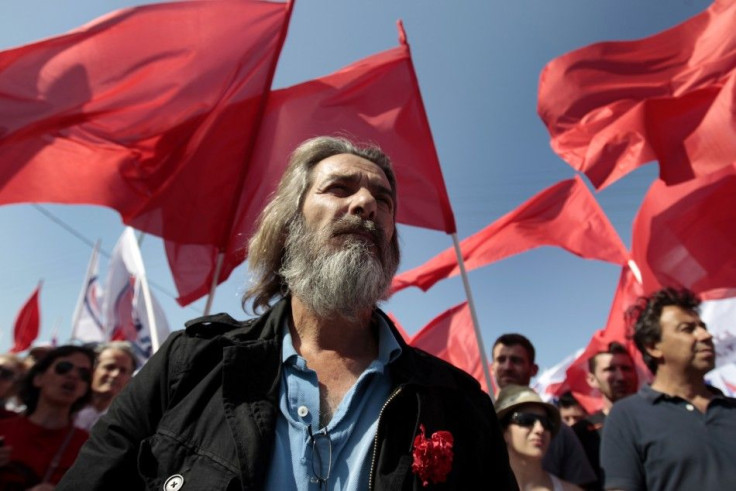Greek Polls: Chance Of A Hung Parliament Raises Concerns Over Eurozone Future

Polling began in Greece Sunday in an early general election that could push the debt struck country to further turmoil and uncertainty.
Angry Greek voters are expected to vote against the two major parties in the country - the New Democracy and the Socialist PASOK, which ruled them for decades taking turns.
Greece is still reeling under the debt crisis that exploded in 2009 end, forcing the country to accept strict and unpopular austerity measures slapped by the European Union and the International Monetary Fund in exchange of $228 billion bailout package.
The belt-tightening austerity measures involving steep cuts in salaries, public spending, shutting unprofitable public sector enterprises and mass lay-offs have led to protraction of recession and high unemployment rate.
People are fuming over the two major political parties holding them responsible for the economic and financial meltdown the country is facing. Both the New Democracy and the Socialist PASOK are backing the austerity measures and the bailout package.
Sunday's election has gained significance as observers feel that both the major parties may lose out to the nearly 30 smaller parities that are against the austerity measures. The situation is dreaded by the government and its international lenders, as any move to derail the bailout package will reignite the Eurozone crisis.
Major lenders for the bailout package, Germany and IMF, have already warned Greece about the consequences of voting against the bailout and insisted that whoever wins the polls are bound to continue with the agreed bailout terms and conditions to solve the crisis, according to Reuters.
If the newly elected government in Greece chooses not to adhere to the EU norms, then there is a danger of lenders stopping the bailout fund which will prove disastrous for the debt-strapped country. Greece is certainly not in position to stay afloat without the bailout money and any such move would force it out of the Eurozone.
Opinion polls indicate that the New Democracy Party might get most votes but not enough to claim majority, forcing the party to look for alliance with PASOK or any other partner(s) with relevant strength. Meanwhile, the support for smaller parties has increased drastically and more than 10 of these parties have polled above 3 percent limit for winning seats in opinion polls.
This is an indication that Greece is going to have a fragmented parliament. The public seem to be supporting the smaller parties.
The big parties' policies are terrible, people are hungry. I hope all the small parties are strengthened, Panagiotis, a 46-year old truck driver who cast his vote, was quoted as saying by Reuters.
We are already bankrupt. I don't think that voting for a small party will make us go bankrupt. We already are, 53 year-old Panagiotis, a craftsman said, according to the report.
However, the analysts believe that uncertainty and chaos will prevail if no party gets close to the majority. The smaller parties with different ideologies are too fragmented and divided to form any kind of alliance.
Even the activists of the New Democracy and PASOK feel that even if a coalition is formed between the parties, it will be short-lived and result in another round of elections soon.
We are probably going to wind up with a New Democracy-PASOK coalition if they get the seats, which they might not. Either way, another round of elections before year-end is entirely possible, the Wall Street Journal quoted David Lea, an analyst at Control Risks, an independent risk-consulting firm, as saying.
The polls will close at 12:00 p.m. EDT (1600 GMT) and first results are expected from about 1830 GMT. If no party gets clear majority, the President will invite the largest party to form government with in a deadline of three days to prove majority. If it fails, then the second largest party will be invited and the process will go on till a party or coalition proves majority. If no party could prove majority, then fresh elections will be announced.
The road ahead is not smooth for the elected government as the new government has to find out ways to save over 11 billion euros in extra-spending cuts for the 2013-14 financial year, according to the bailout package. This would need further lay-offs in unprofitable sectors and will be a tough task as the people are not ready to accept anymore austerity measures.
© Copyright IBTimes 2024. All rights reserved.






















